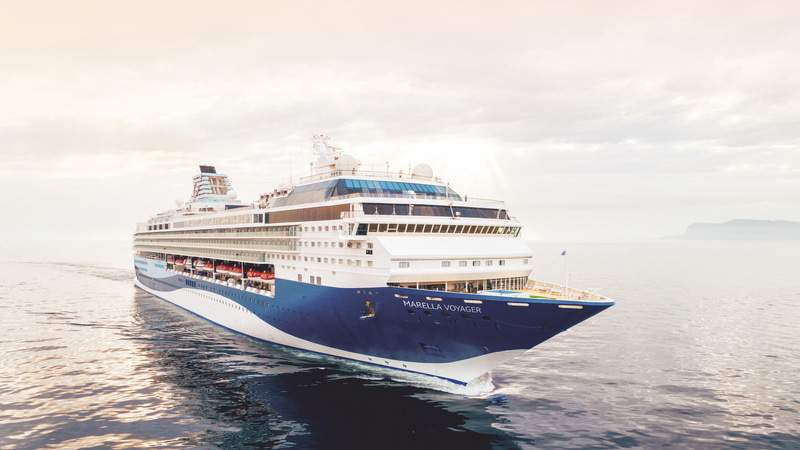Marella Cruises has cancelled its 2024/2025 Middle East and Asia programme in response to Red Sea conflicts. This decision underscores the priority placed on the safety of both passengers and crew members, amidst a challenging geopolitical climate.
Acknowledging the disappointment among affected travellers, Marella will inform clients about rebooking or refund options. This proactive approach aims to address customer concerns and maintain trust, despite sudden itinerary changes.
Programme Withdrawal Due to Security Concerns
Marella Cruises has announced the cancellation of its 2024/2025 Asia and Middle East programme. The decision, influenced by the ongoing conflict in the Red Sea, reflects the company’s commitment to passenger and crew safety. Voyages scheduled between 1 November and 30 April have been cancelled, highlighting the volatile geopolitical climate significantly impacting cruise itineraries.
Authorities from Marella express an understanding of the disappointment this announcement may cause. A representative stated that impacted customers would be contacted by their booking agent to discuss options, demonstrating proactive customer engagement amidst unforeseen circumstances. Options include rebooking at a reduced rate or obtaining a full refund, aimed at mitigating inconvenience for affected individuals.
Impact of Red Sea Conflict on Cruise Lines
Marella Cruises is not alone in adjusting operations due to the Red Sea tensions. Virgin Voyages recently cancelled its 2024/2025 plans for the Resilient Lady, which was slated for Australian waters, underscoring the widespread impact of geopolitical instability in the region. Similarly, Crystal Cruises and Carnival Corporation have had to alter their itineraries, affecting numerous vessels across multiple brands.
The situation highlights the wider impact of regional conflicts on global cruising routes. As safety concerns prevail, several cruise lines are forced to rethink or cancel their plans. This disruption is a reminder of how external geopolitical factors can unexpectedly alter business operations.
Customer Compensation and Communication Strategy
Marella Cruises has put a customer-centric approach at the forefront during this challenging period. Affected customers are being informed directly by booking agents, ensuring clear and effective communication channels remain open. This strategy is intended to provide customers with clarity and options, alleviating the stress of sudden changes.
Options presented to customers include rebooking at a £200 discount per person or requesting a full refund. These measures signify Marella’s dedication to maintaining customer trust and satisfaction, even amidst operational changes forced by external factors.
Marella’s move to address customer concerns promptly showcases the company’s capabilities in crisis management. By offering alternatives, the cruise line aims to preserve its reputation and foster loyalty during uncertain times.
Industry-wide Adjustments and Future Outlook
The global cruise industry is continuously adapting to the unpredictable nature of international conflict, as evidenced by the recent adjustments by Marella and other major lines. This scenario underscores the agility required to manage unforeseen challenges, such as the Red Sea conflict, while prioritising the well-being of passengers and crew.
Looking ahead, industry experts predict that flexible itineraries and robust contingency plans will become standard practice. By learning from current disruptions, cruise lines are expected to develop more resilient operational frameworks, better equipped to handle similar situations in the future.
Geopolitical Instability’s Influence on Travel Decisions
The volatility in the Red Sea region serves as a stark reminder of how geopolitical factors can directly influence travel and tourism decisions. As tensions arise, cruise operators must weigh the risks and benefits of continuing scheduled routes versus altering plans to ensure safety.
The transparency shown by Marella in communicating with affected passengers is crucial during such times. Honest and direct communication helps maintain customer trust and reinforces the importance of safety.
This instance illustrates the broader influence of geopolitical situations on the travel sector. Operators must constantly evaluate risks and adapt to changing circumstances to safeguard their operations and clientele.
Safety-First Approach: A Common Industry Theme
Safety remains the paramount concern for cruise operators, as demonstrated by Marella and its peers’ recent adjustments. The prioritisation of passenger and crew well-being over operational schedules illustrates a commitment shared across the industry.
Cruise lines continue to perceive safety as a leading determinant in their decision-making processes, especially in conflict-prone regions. The collective response to the Red Sea conflict emphasises the shared challenge of balancing safety with business interests.
Looking Forward
In light of the current situation, Marella’s strategic decision underlines the importance of flexibility and adaptability. As the travel industry navigates uncertain geopolitical landscapes, maintaining a robust safety protocol and transparent communication will be key in fostering customer confidence.
In conclusion, Marella Cruises’ decision reflects a necessary adaptation to current geopolitical challenges. By prioritising safety and communication, the company aims to navigate through uncertain times responsibly, reassuring passengers of their well-being.
As the cruise industry continues to face disruptions, Marella’s actions highlight the need for flexibility and customer-focused strategies to maintain resilience and trust.

